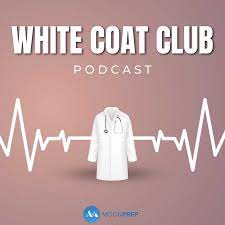Unlocking Potential: How Research Prepares BS/MD Students for Success
Research experience is a cornerstone of a strong BS/MD application. Beyond enhancing your resume, engaging in research provides valuable skills, insights, and opportunities that can shape your academic and professional future. From learning cutting-edge techniques to gaining a deeper understanding of the scientific process, research is an invaluable experience for aspiring physicians.
Here’s why research is so beneficial and how it prepares you for the challenges ahead.
Gaining Practical Skills for the Future
Engaging in research equips students with hands-on experience that goes beyond theoretical knowledge. From conducting experiments to interpreting results, research teaches practical skills like data collection, critical analysis, and effectively communicating findings. For example, you may need to troubleshoot unexpected challenges during an experiment or identify trends from raw data, honing your ability to think critically and adapt to new information.
Research also provides the opportunity to collaborate with a team of peers, mentors, and professionals. This teamwork fosters communication and leadership skills that will prove invaluable not only during your BS/MD program but also in future medical practice. The abilities you develop in research settings are transferable to clinical environments, making them a key part of your growth as a future physician.
Exploring Cutting-Edge Medical Innovations
Participating in research puts you at the forefront of scientific discovery and offers a unique chance to explore advancements in medicine and technology. Whether you’re working on projects involving AI-driven diagnostics, genetics advancements, or new treatment protocols, research introduces you to innovative tools and methods shaping the future of healthcare.
This exposure not only deepens your understanding of science but also connects you to the evolving landscape of medical technology. By working on such advanced projects early in your career, you demonstrate a proactive approach to learning and position yourself as someone prepared to engage with the innovative side of medicine. This forward-thinking mindset can help you differentiate yourself in the highly competitive BS/MD admissions process.

Showcasing Passion and Commitment to Medicine
Research showcases your curiosity and commitment to exploring the world of science and medicine. Admissions committees for BS/MD programs look for students who go beyond the basics of academic achievement to actively pursue opportunities that reflect their passion for the field. Through research, you have the chance to explore areas of study that excite you, whether it’s investigating neurological diseases, exploring public health solutions, or contributing to advancements in biochemistry.
This dedication often comes through naturally in essays and interviews, where you can highlight the specific ways research has shaped your interest in medicine. Discussing your work and the personal impact it’s had on you allows you to connect your experiences to your long-term goals, giving depth and authenticity to your application.
Understanding the Research Process: From Hypothesis to Publication
Participating in research helps you understand the full lifecycle of scientific inquiry, offering insight into the methods and mindset behind advancements in science. The journey begins with formulating a hypothesis, where you’ll learn to identify gaps in existing knowledge and develop questions to explore. From there, you’ll move into designing and conducting experiments, learning to navigate challenges and adapt as new information arises.
The process doesn’t end with the results. You’ll analyze data to draw meaningful conclusions and, in many cases, collaborate on presenting findings to others, whether through presentations, posters, or written publications. This comprehensive understanding of research—from hypothesis to publication—teaches perseverance, critical thinking, and communication, all of which are invaluable for a BS/MD program and your future career in medicine.
Building a Network of Mentors and Peers
Research environments provide an incredible opportunity to connect with professionals and peers who can help shape your academic and career journey. Working under the guidance of a mentor gives you access to their expertise and support. They can provide valuable career advice, offer feedback to help you grow, and even write letters of recommendation that speak to your dedication and growth as a researcher.
Additionally, collaborating with peers in the lab builds your teamwork and interpersonal skills while allowing you to form connections that may lead to future opportunities. The relationships you develop through research can become a foundation for long-term support, whether through professional collaborations or mentorships that extend into your BS/MD studies and beyond.
Conclusion
Research is far more than a line on your resume—it’s a transformative experience that prepares BS/MD students for the challenges of a rigorous academic and medical career. From gaining practical skills to exploring cutting-edge innovations, research equips you with the tools to succeed in both your studies and future practice.
For students looking to gain hands-on research experience, Rising Researchers offers exceptional opportunities through their winter and summer experiential camps. These programs provide a chance to work on real-world research projects under expert guidance, helping you build valuable skills while strengthening your BS/MD application. Visit their website to learn more and sign up for upcoming sessions.
Additionally, the White Coat Club Podcast recently covered strategies for adding research to your resume, offering actionable tips to help you make the most of your experiences. It’s a must-listen for any student aiming to stand out in their BS/MD applications. Take advantage of these resources to elevate your application and prepare for success.

